 Petzlover
Petzlover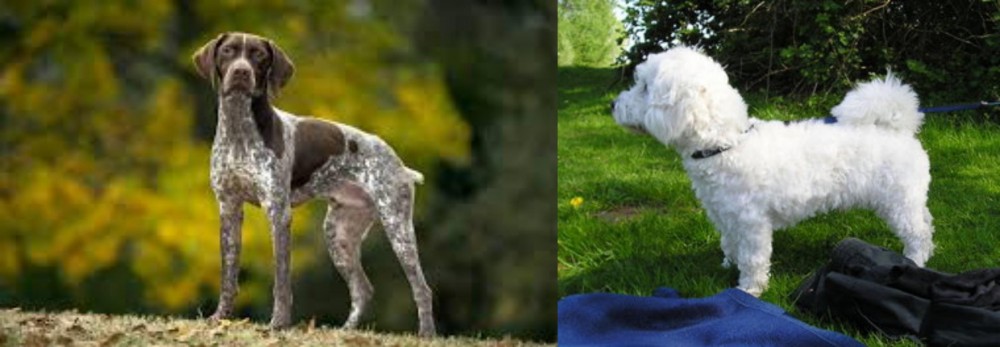 Both Braque Francais (Gascogne Type) and Franzuskaya Bolonka are originated from France. Braque Francais (Gascogne Type) may grow 42 cm / 17 inches higher than Franzuskaya Bolonka. Braque Francais (Gascogne Type) may weigh 27 kg / 60 pounds more than Franzuskaya Bolonka. Both Braque Francais (Gascogne Type) and Franzuskaya Bolonka has almost same life span. Braque Francais (Gascogne Type) may have more litter size than Franzuskaya Bolonka. Both Braque Francais (Gascogne Type) and Franzuskaya Bolonka requires Low Maintenance.
Both Braque Francais (Gascogne Type) and Franzuskaya Bolonka are originated from France. Braque Francais (Gascogne Type) may grow 42 cm / 17 inches higher than Franzuskaya Bolonka. Braque Francais (Gascogne Type) may weigh 27 kg / 60 pounds more than Franzuskaya Bolonka. Both Braque Francais (Gascogne Type) and Franzuskaya Bolonka has almost same life span. Braque Francais (Gascogne Type) may have more litter size than Franzuskaya Bolonka. Both Braque Francais (Gascogne Type) and Franzuskaya Bolonka requires Low Maintenance.
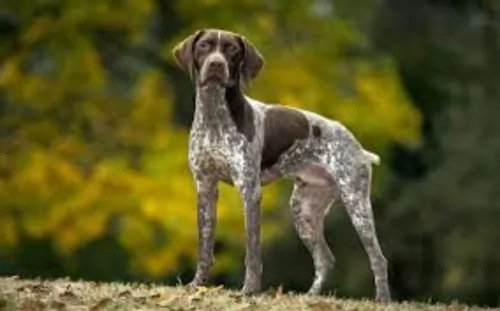 The Braques Français – Gascogne – is a hunting dog from southern France’s Gascony region. Known also as the French Gascony Pointer, this dog has descended from Spanish and Italian Pointers. The dog was saved from extinction at the turn of the 20th century.
The Braques Français – Gascogne – is a hunting dog from southern France’s Gascony region. Known also as the French Gascony Pointer, this dog has descended from Spanish and Italian Pointers. The dog was saved from extinction at the turn of the 20th century.
There are actually two breeds of Braque français, with the other being somewhat smaller and known as Braque français, type Pyrénées. Whichever one you have, they are popular hunting dogs in France. The first breed club was established in 1850.
 The Franzuskaya Bolonka in France is known as the Tsvetnaya Bolonka in Russia and in Germany as the Bolonka Zwetna. All of these translate to Colored Bolognese. It is known as the “Pride of Russia” and was rediscovered by the Russians following the thaw of the Cold War. It is also sometimes translated as a colored lapdog.
The Franzuskaya Bolonka in France is known as the Tsvetnaya Bolonka in Russia and in Germany as the Bolonka Zwetna. All of these translate to Colored Bolognese. It is known as the “Pride of Russia” and was rediscovered by the Russians following the thaw of the Cold War. It is also sometimes translated as a colored lapdog.
The Bolonka is a rare breed in the toy category with ancestors in the Bichon Friese line. This little dog looks very much like the national dog of Cuba – the Havanese. In addition to the Bichon other small dogs in this ancestral line include the Shih Tzu, Toy Poodle, and Pekingese as well as the French, Italian and German Bolonka. They are often confused with the Bolognese as both breeds appear in various countries and have many similarities.
In all countries the common name for this dog is the Bolonka. They have a variety of names and nick names depending on the country. In addition to being the “Pride of Russia” he is called a Russian colored Bichon, Czechs call it the Bareyny Bolonsky, the Germans since 1980 have called it the Bolonka Zwetna but the Nordic Kennel Union does not recognize the Zwenta only the Russian Twetnaya.
The French version is seen to be the original with its ancestry dating back to the 18th century when Russian nobles were presented with a Bolonka by Louis XIV of France, and others migrated with the army of Napoleon to Russia. They were still known as the Bolonka of France. Small dogs were not popular in Russia due to the need for dogs that could work on farms and/or hunt. Particularly during the Soviet years, they were considered unnecessary. No Bolonkas were imported to Russia during the Soviet regime, so only localized breeding took place. The goal of breeders in the Soviet Union was to develop a toy dog, lap sized with an apartment living temperament.
During the cold war the Russians sent a pair of breeding Franzuskaya Bolonka to East Germany and they began to develop the breed there as well. At the same time the colored versions of the Bolonka were being bred. The Franzuskaya Bolonka is recognized by the Verband Dur Das Deutsche Hundewesen (VDF) while the other colored breeds are not. The white Bolonka is not recognized by the Federation Cynoloqique Internationale as a breed separate from the Bolognese but as simply another version. Individual clubs throughout the world recognized one or more versions of the Bolonka. They are thought to be the rarest within the Bichon family.
Today’s Bolonka is owed by Prince William and Princess Kate, giving the breed more publicity than it has had in many years.
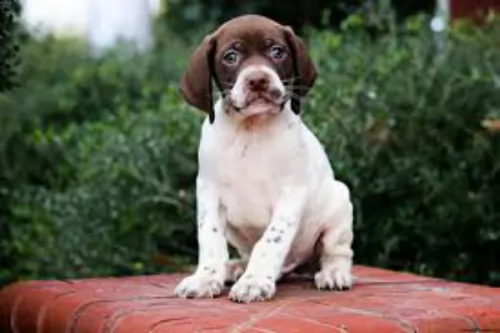 The Braque Francais is a dog which looks much like the German Short-haired Pointer. The Braque Francais (Gascogne) is a large breed dog, standing roughly 56 – 69cm. Weight is most times dependent on height, but the average weighs between 35 and 55 pounds. The dog is attractively lean and muscular and the tails have always been docked, although rules and regulations see the breed with a long tail these days. The natural tail of the Braque Francais is medium length. The eyes of this breed are brown or yellow and the ears are medium in length and floppy. The coat of the Gascogne is short and dense and in two colors – white and chestnut patching and mottling.
The Braque Francais is a dog which looks much like the German Short-haired Pointer. The Braque Francais (Gascogne) is a large breed dog, standing roughly 56 – 69cm. Weight is most times dependent on height, but the average weighs between 35 and 55 pounds. The dog is attractively lean and muscular and the tails have always been docked, although rules and regulations see the breed with a long tail these days. The natural tail of the Braque Francais is medium length. The eyes of this breed are brown or yellow and the ears are medium in length and floppy. The coat of the Gascogne is short and dense and in two colors – white and chestnut patching and mottling.
The dog is a keen tracker and is an excellent game and gun dog with some of them requiring more training than others. Training and socialization makes the Braque Francais an excellent, obedient pet who is eager to please and he is considered to be easily trainable, learning quickly. He loves his human family and is noted for his gentle, friendly nature, and he therefore makes and excellent family pet where there are children and other pets.
 The Franzuskaya Bolonka is neither heavy boned nor fine boned. They are a toy breed with a moderate bone structure. The ears are neither long nor short and they have tails that touch the back at the tip. Like others in the Bichon family the Franzuskaya Bolonka does not shed. He is a sturdy little dog and the male has a distinct beard and moustache that the females of the breed do not. They have long coats that are wavy and curly. The Franzuskaya Bolonka is of course only white. The Russian version might be brown, red, black, wolf-gray, gray and of course white.
The Franzuskaya Bolonka is neither heavy boned nor fine boned. They are a toy breed with a moderate bone structure. The ears are neither long nor short and they have tails that touch the back at the tip. Like others in the Bichon family the Franzuskaya Bolonka does not shed. He is a sturdy little dog and the male has a distinct beard and moustache that the females of the breed do not. They have long coats that are wavy and curly. The Franzuskaya Bolonka is of course only white. The Russian version might be brown, red, black, wolf-gray, gray and of course white.
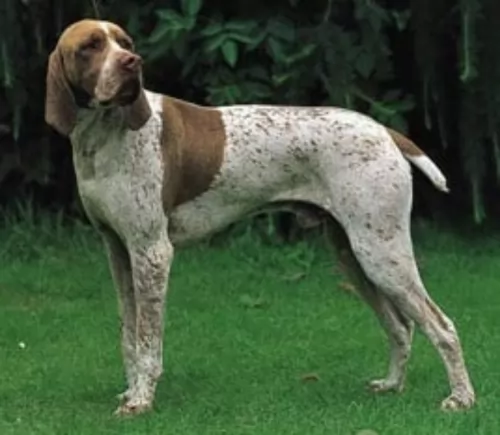 The attractive Braque Francais is a calm, contented dog who is also affectionate, social and intelligent. He is already a well mannered dog but will do even better with training and socialization. However, Braque Francais don’t take well to aggressive training and done the wrong way, the dog can end up being timid and confused.
The attractive Braque Francais is a calm, contented dog who is also affectionate, social and intelligent. He is already a well mannered dog but will do even better with training and socialization. However, Braque Francais don’t take well to aggressive training and done the wrong way, the dog can end up being timid and confused.
Wanting to please and being an intelligent dog, training should be fun, lighthearted but firm. In exchange you’re going to have an awesome friend from this wonderful, loving dog breed.
 The Bolonka is great with kids, just avoid too intense play.
The Bolonka is great with kids, just avoid too intense play.
The Bolonka is a playful, lap dog with a lot of love to offer
Good adaptability great in the city in apartments and great in the country as well
They are very smart and love to learn. Being firm but beyond firm is also kind.
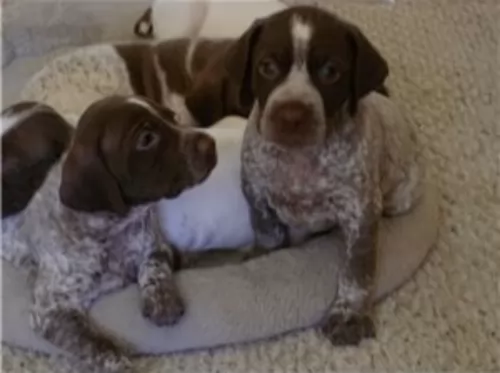 You won’t find many health issues with this active breed but nonetheless hip and joint issues will need to be watched. If you are considering a Braque Français puppy, you’ll want to be selective in choosing a responsible breeder. A healthy puppy with the right environment, can get to up to 15 years of age.
You won’t find many health issues with this active breed but nonetheless hip and joint issues will need to be watched. If you are considering a Braque Français puppy, you’ll want to be selective in choosing a responsible breeder. A healthy puppy with the right environment, can get to up to 15 years of age.
Ectropion and entropion in dogs affect their eyelids. Ectropion is where the eyelids roll outward, whereas entropion is where the eyelids curve inward, irritating the eye. Because visual and skeletal problems occur in this breed, it can be recommended that owners have their pets tested by both the Canine Eye Registration Foundation as well as the Orthopedic Foundation for Animals.
 Medical issues are not fully documented because of the rarity of the breed and the years of isolation in the Soviet Union.
Medical issues are not fully documented because of the rarity of the breed and the years of isolation in the Soviet Union.
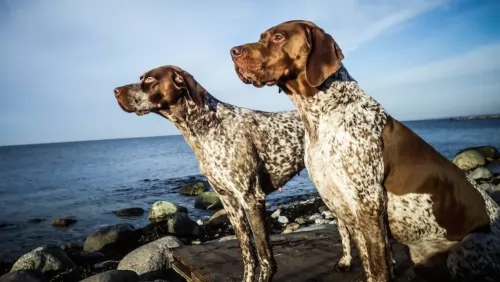 Brushing the coat twice a week will get rid of loose hairs and maintain the sheen of the coat. Also, as a floppy eared breed, attention should be given to the ears to prevent infections. He will also need to have his teeth brushed with dog toothpaste and brush to prevent the build-up of damaging plaque and his nails will also require a clipping if they don’t manage to wear down naturally.
Brushing the coat twice a week will get rid of loose hairs and maintain the sheen of the coat. Also, as a floppy eared breed, attention should be given to the ears to prevent infections. He will also need to have his teeth brushed with dog toothpaste and brush to prevent the build-up of damaging plaque and his nails will also require a clipping if they don’t manage to wear down naturally.
Daily activity will be needed for this dog and he will want a walk every day. He certainly isn’t a dog you can leave indoors or outside in your backyard day after day. Any activities that require physical exertion will be good because they are exceptional athletes. If you are a cyclist or a runner, take him with you – he’ll love it.
Your Braque Francais loves energetic activities and for this he will require an excellent nutrient-rich diet. Nutrient-rich dog foods are higher in protein and fat and lower in carbohydrates. It’s important to check out the carbohydrate content in commercial dog foods to avoid those one high in carbohydrates.
Your vet can always advise you on a good quality food and you can always give him your own home-prepared foods which include rice, vegetables and meat. Certainly include some raw meat into his diet every now and then to avoid skin problems. Fresh, cool water must be available to him night and day.
 Feed at least 3 meals a day. Feed one fourth of a cup daily split into three meals of a high quality puppy food.
Feed at least 3 meals a day. Feed one fourth of a cup daily split into three meals of a high quality puppy food.
Feed at least 2 meals per day. Feed one half of a cup daily split into two meals of a high quality dry food.
Fairly healthy breed due to isolation during cold war
The Franzuskaya Bolonka is developed as a lap dog but that does not mean he doesn’t need daily exercise. He loves to play but play gently and not for any length of time. They like to chase balls, play hide and seek and any tricks you want to teach them.